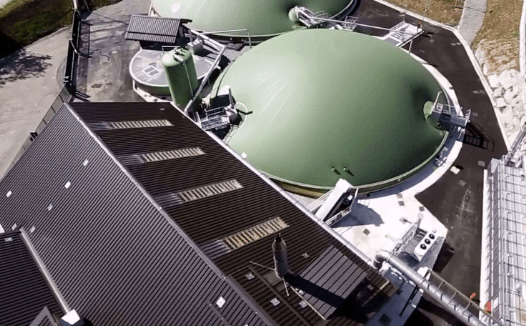
The facility is expected to convert approximately 50,000 tons per year of organic waste into two megawatts of energy. The feedstock is anticipated to include various waste streams generated by slaughterhouses, citrus juice facilities and food production facilities on Jeju Island.
These solid and liquid feedstocks are intended to be digested anaerobically, and the biogas produced from this process is expected to be utilized in a biogas combined heat and power unit.
The facility is to include pretreatment technologies, and Anaergia's Omnivore™ anaerobic digestion system to produce approximately two megawatts of renewable energy and heat to be used for digestion, pasteurization and evaporation.
The facility is also intended to generate digestate that is intended to be composted into fertilizer at an offsite location. The wastewater from the Facility is expected to be treated and recycled for use at the Facility and off-site agricultural use.
The facility is expected to significantly reduce greenhouse gas emissions from the island of Jeju while recycling its waste. South Korea has announced a national biogas strategy that aims to produce up to 500 million Nm³/yr of biogas by 2026, which would cut GHG emissions by one million tons per year.
"New Jeju Bio has selected Anaergia for this plant owing to the company's proven ability to provide integrated solutions for complex projects,” said Sae Hyun Cho, CEO of New Jeju Bio. “We look forward to utilizing Anaergia's solutions to convert a diverse range of organic wastes that are being generated on Jeju Island into useful resources.”
“This Letter of Award from New Jeju Bio marks a significant milestone in Anaergia's expansion into South Korea,” said Assaf Onn, CEO of Anaergia. “This achievement represents a strategic opportunity for Anaergia to capitalize on the growing demand for organic waste solutions in this new market.”

